Scientific Advisory Panel
Made up of 13 prestigious PKD physicians and scientists, the Scientific Advisory Panel (SAP) oversees our research and medical programs aimed at discovering and delivering treatments for PKD. The SAP meets throughout the year to discuss relevant medical issues, provide guidance to our staff and review and approve research applications for grants and fellowships in the field of PKD science. All our materials are approved by SAP members, who possess the highest level of experience and knowledge in PKD clinical and scientific work.
Officers

VISHAL PATEL, M.D.
Chair
University of Texas Southwestern Medical Center
Biography
Vishal Patel, M.D., is an Assistant Professor of Medicine at the University of Texas Southwestern Medical Center in Dallas, Texas. He obtained his medical degree in India and then completed his internal medicine residency training at the McGraw Medical Center of Northwestern University in Chicago, and a clinical nephrology fellowship and a basic science fellowship sponsored by the National Institutes of Health at the University of Texas Southwestern Medical Center. Dr. Patel has received numerous awards for academic achievement during medical school and a career development award from the NIH. He was also named a ‘rising star’ in Nephrology by Texas Monthly magazine.
Dr. Patel runs a pre-clinical polycystic kidney disease research laboratory at UT Southwestern. His research is focused on understanding the role of microRNAs in PKD progression and developing microRNA-based drugs for PKD. His laboratory is funded by grants from the NIH and the PKD foundation. In addition to research, Dr. Patel also sees patients at Parkland Hospital in Dallas, Texas. He is planning to launch a new multidisciplinary clinic in the coming months with the goal of providing comprehensive clinical care for PKD patients at UT Southwestern.
Members
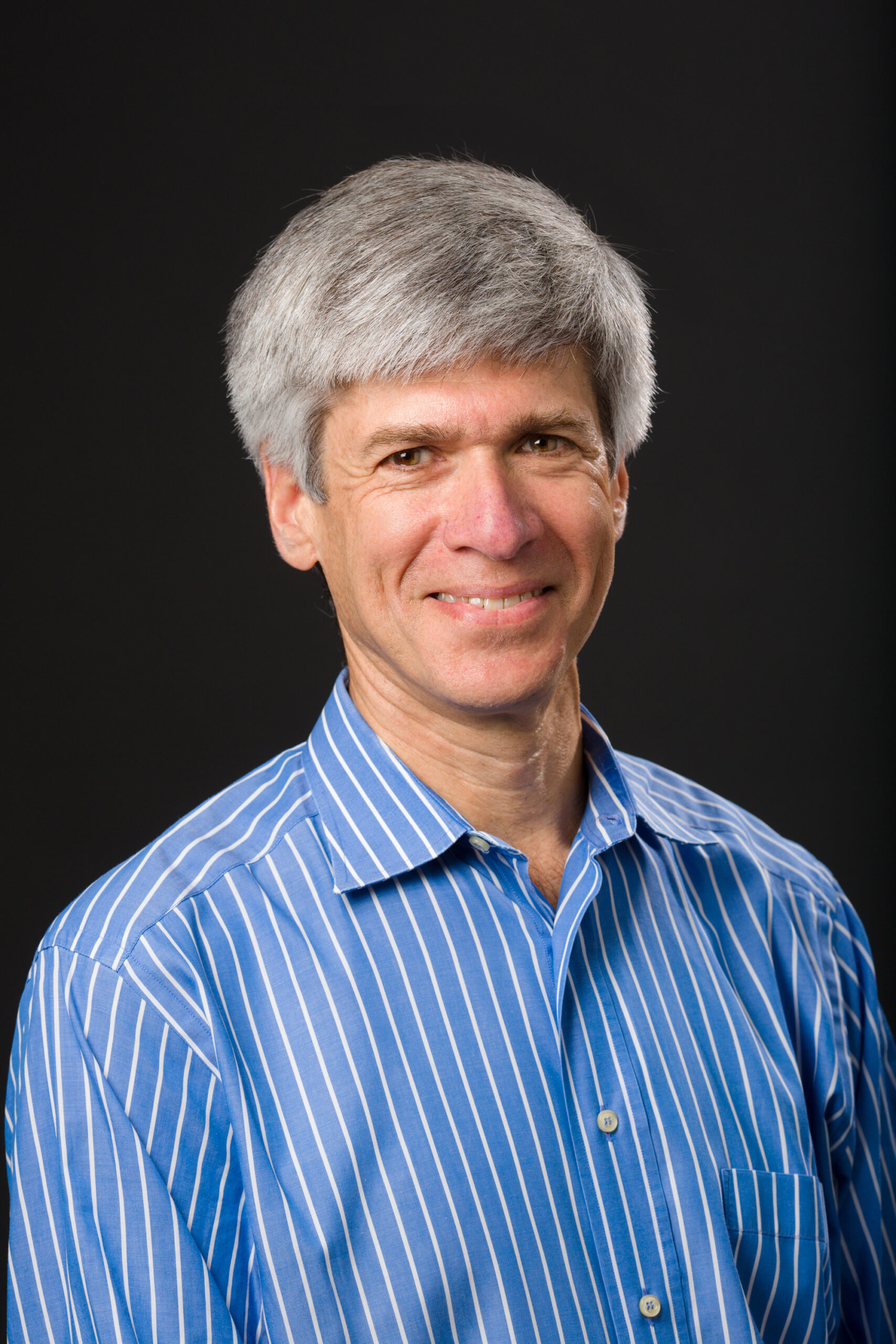
MICHAEL CAPLAN, M.D., PH.D.
Yale University
Biography
Michael J. Caplan is the C.N.H. Long Professor and Chair of the Department of Cellular and Molecular Physiology and Professor of Cell Biology at the Yale University School of Medicine. He earned his undergraduate degree from Harvard University in 1980, and his M.D. and Ph.D. degrees from Yale University in 1987, working in the laboratories of Drs. J.D. Jamieson and G.E. Palade. He joined Yale’s Department of Cellular and Molecular Physiology as a faculty member in 1988. He has received fellowships from the Helen Hay Whitney Foundation, the David and Lucille Packard Foundation for Science and Engineering and a National Young Investigator Award from the National Science Foundation. He has received the Young Investigator Awards from the American Physiological Society and the American Society of Nephrologists, and has delivered the American Physiological Society’s Carl W. Gottschalk Distinguished Lectureship. He has been elected to membership in the American Association of Physicians and has also been very honored to receive Yale University School of Medicine’s Bohmfalk Prize for teaching and to be selected as the first recipient of Yale University’s Award for Postdoctoral Mentorship. His scientific work addresses the ways in which epithelial cells communicate with one another to generate and maintain their unique structures. His laboratory is focused on Autosomal Dominant Polycystic Kidney Disease, a prevalent and serious genetic disorder and a major cause of kidney failure. The Caplan laboratory is working to understand the mechanisms responsible for this condition and to identify targets for new therapies.
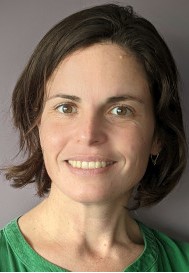
EMILIE CORNEC-LE GALL, M.D., PH.D.
University of Brest, France
Biography

NEERA DAHL, M.D.
Mayo Clinic
Biography
Dr. Neera Dahl is currently a clinician-educator and an Associate Professor at Yale University, School of Medicine, Section of Nephrology. She completed an MD and PhD from Tufts University School of Medicine, and then residency and fellowship at the Beth Israel Deaconess Medical Center, in Boston, MA. She has been at Yale since 2007. She has been instrumental in developing the Yale Inherited Kidney disease clinical program, and is the principal investigator for several ongoing clinical trials in ADPKD. She maintains an active ADPKD registry and is involved in research exploring the role of inflammation and fibrosis in the progression of ADPKD. She is the director of the Yale Nephrology Clinical Trials Program.
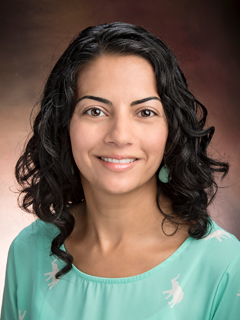
ERUM HARTUNG, M.D.
Children’s Hospital of Philadelphia
Biography
Erum Aftab Hartung, M.D., MTR, is a pediatric nephrologist at the Children’s Hospital of Philadelphia (CHOP). Her research interests include autosomal recessive polycystic kidney disease (ARPKD), development of imaging biomarkers of kidney and liver disease, and neurocognitive outcomes in children with chronic kidney disease. She currently serves as chair of the Research Committee of the American Society of Pediatric Nephrology, and is the Associate Program Director for the pediatric nephrology fellowship at CHOP. Dr. Hartung’s research is funded by grants from the National Institute of Diabetes and Digestive and Kidney Diseases (National Institutes of Health) and the University of Pennsylvania (Penn). Dr. Hartung is on the faculty of the Perelman School of Medicine at Penn as Assistant Professor of Pediatrics. She lives in Swarthmore, PA with her husband and two children.
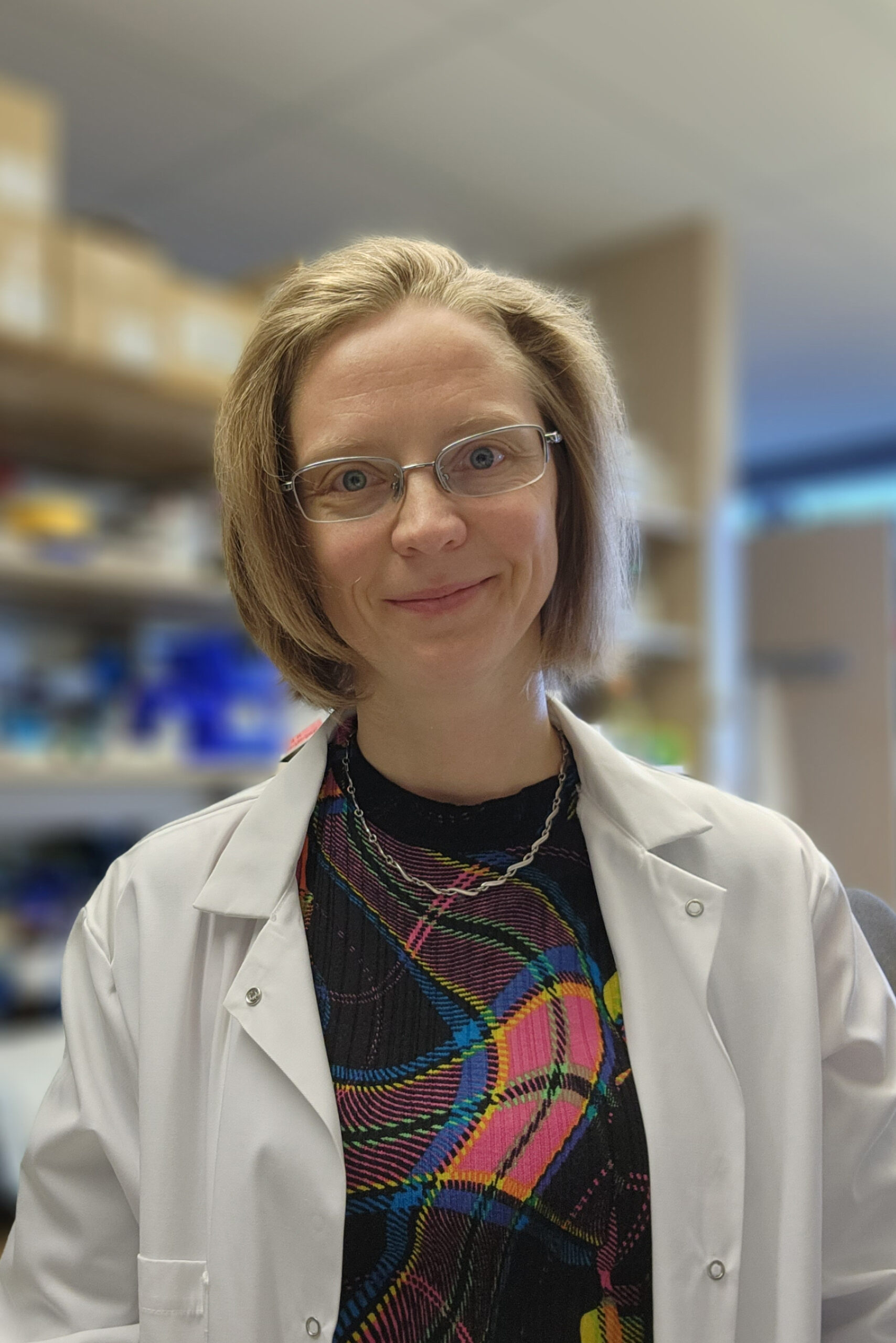
KATHARINA HOPP, PH.D.
University of Colorado Denver
Biography
Dr. Katharina Hopp, Ph.D., is as Assistant Professor at the University of Colorado, Denver, Anschutz Medical Campus, where her lab studies the pathomechanisms that drive kidney cyst growth using a wide variety of rodent models and in vitro cell culture systems. Specifically, her lab researches the functional role of immune cells in PKD progression. She is interested in understanding the interplay between immune cells and the cystic epithelium and whether it could be therapeutically targeted to slow kidney cyst growth. More recently, Dr. Hopp became inspired by findings from the cancer field highlighting that metabolic dysregulation impacts the anti-tumor function of immune cells. Appreciating the effect that metabolic reprogramming has on PKD pathology, her lab studies how dysregulated metabolism alters the cystic immune microenvironment and whether dietary/metabolism-based approaches can prime immune cells in functioning to slow cyst growth. Lastly, Dr. Hopp directs a preclinical PKD core which utilizes a variety of murine PKD models, in vivo imaging techniques, toxicology and pharmacodynamic assays, and detailed pathology analyses to evaluate therapeutic efficacy of novel compounds aimed to slow PKD progression.

MAX CHRISTOPH LIEBAU, M.D.
University Hospital Cologne
Biography
Max C. Liebau, MD, is a clinical consultant pediatric nephrologist at the Department of Pediatrics at the University Hospital Cologne, Germany, where he holds positions as Head of the Social Pediatric Center for Chronically Ill Children and Head of Translational Pediatric Nephrology. Dr Liebau combines his clinical training as a pediatric nephrologist with his experience in cellular and molecular biology obtained in the Nephrology Research Laboratories in Freiburg and Cologne, Germany and at the University of California, Santa Barbara. His group follows a translational research approach to study genetic kidney diseases with a special focus on Autosomal Recessive Polycystic Kidney Disease (ARPKD). The group aims to understand the molecular function of the ARPKD protein fibrocystin and to characterize clinical long-term courses of ARPKD as a basis for the identification of clinical and/or biochemical risk markers of disease progression. Dr Liebau initiated and is currently leading the international ARPKD registry study ARegPKD and is a co-initiator of the pediatric ADPKD registry study ADPedKD. His research is funded by the German Research Council and the German Federal Ministry for Education and Research amongst others.
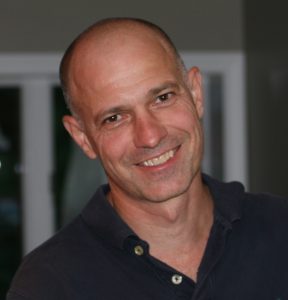
GREGORY PAZOUR, PH.D.
University of Massachusetts
Biography
Dr. Pazour is currently a Professor of Molecular Medicine at the University of Massachusetts Medical School. He obtained his PhD from the University of Minnesota studying the plant pathogen Agrobacterium. This was followed by post-doctoral studies at the Worcester Foundation for Biomedical Research where he made the unexpected connection between cilia in the green alga Chlamydomonas and cystic kidney disease. His laboratory focuses on understanding the mechanisms of ciliary assembly and the role that cilia play in mammalian health and development. In particular the Pazour group is interested in the function of the intraflagellar transport proteins. This thirty-protein complex is critical to build cilia and is evolutionarily conserved across eukaryotes from green algae to humans. Defects in most intraflagellar transport proteins block ciliary assembly and cause cystic kidney disease, retinal degeneration and structural birth defects in many organs including the kidney. Current work is focused on the intersection between ciliary assembly processes and sensory functions of cilia.
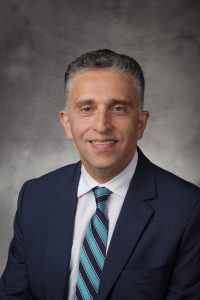
FREDERIC RAHBARI-OSKOUI, M.D.
Emory University School of Medicine
Biography
Dr. Frederic Rahbari-Oskoui is an Associate Professor of Medicine and the Director of the Cystic and Inherited Kidney Diseases Clinic at Emory University School of Medicine in Atlanta, GA. He obtained his medical degree from the University of Bordeaux in France and completed his first residency training in Internal Medicine at the same university.
Dr. Rahbari completed a second internal medicine residency program at St. Vincent’s Medical Center-Columbia University in 2002 and enrolled in a 3-year academic track fellowship in Nephrology and cystic kidney diseases under Dr. Arlene Chapman’s mentorship at Emory University. He joined the Faculty at Emory University in 2006 as an instructor in medicine and was promoted to the rank of Assistant Professor of Medicine in 2008 and Associate Professor of Medicine in 2014.
Dr. Rahbari’s research expertise is in the fields of renal cystic diseases and particularly polycystic kidney disease. He has been an investigator in several landmark trials in ADPKD including: HALT-PKD, TEMPO, REPRISE, and the CRISP observational cohort. His other areas of interest are hypertension, imaging studies of the kidneys and acute kidney injury.
Dr. Rahbari has coauthored more than 40 original articles, review articles, UpToDate chapters, communication letters, and about 40 abstracts and poster presentations at local and national meetings.
Dr. Rahbari firmly supports the fantastic effort of the PKD Foundation and has been a regular participant in the Walk for PKD, fundraising and patient information sessions in GA, NC, and TN.
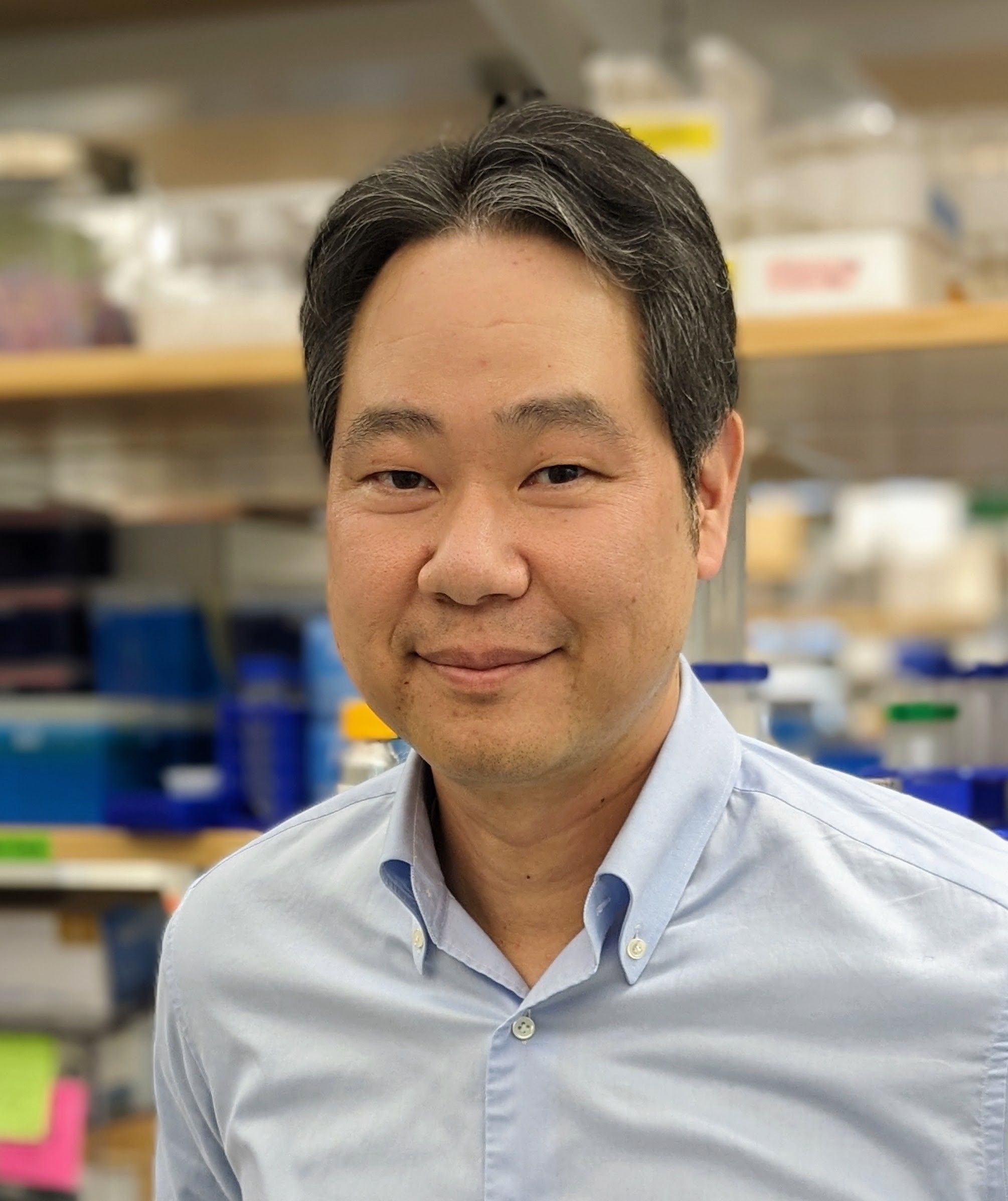
DR. TAKAMITSU SAIGUSA, M.D.
University of Alabama at Birmingham (UAB)
Biography
Dr. Takamitsu Saigusa is a nephrologist and a scientist at the University of Alabama at Birmingham (UAB). He obtained his MD degree from the National Defense Medical College (NDMC) in Japan and completed medical residency and nephrology fellowship at NDMC. After serving in the Japan Self Defense Force, he pursued medical residency at the SUNY-Long Island College Hospital followed by a T32 Nephrology Fellowship at the Medical University of South Carolina, under mentorship of now Professor Emeritus Dr. P. Darwin Bell. He received a career development award from the National Institute of Health (NIH), and moved to UAB in 2016. His lab is interested in how environment may affect the rate of kidney cyst growth focusing on consumption of specific protein diet. His current research, funded by a R01 grant from the NIH, is to study how plant-based protein compared to animal-based protein diet, reduces immune cell activity, inflammation and slows kidney cyst growth using murine models of ADPKD. Dr. Saigusa sees general nephrology and PKD patients at UAB clinic and at the Birmingham VA Medical Center.
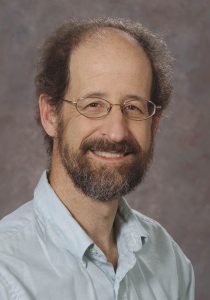
ROBERT H. WEISS, M.D.
University of California Davis, Sacramento VA Medical Center
Biography
Dr. Robert H. Weiss is a clinician/scientist nephrologist and cell biologist and is Professor of Medicine, Emeritus, at UC Davis and Chief of Nephrology at the Sacramento VA Medical Center. His training was all at several campuses of the University of California. His clinical and research interests are broad and include vascular and hereditary renal disease as well as kidney cancer. He was among the first to characterize the role of the cyclin kinase inhibitors in cancer as well as to utilize metabolomics to search for biomarkers and therapeutic targets in kidney cancer and PKD.
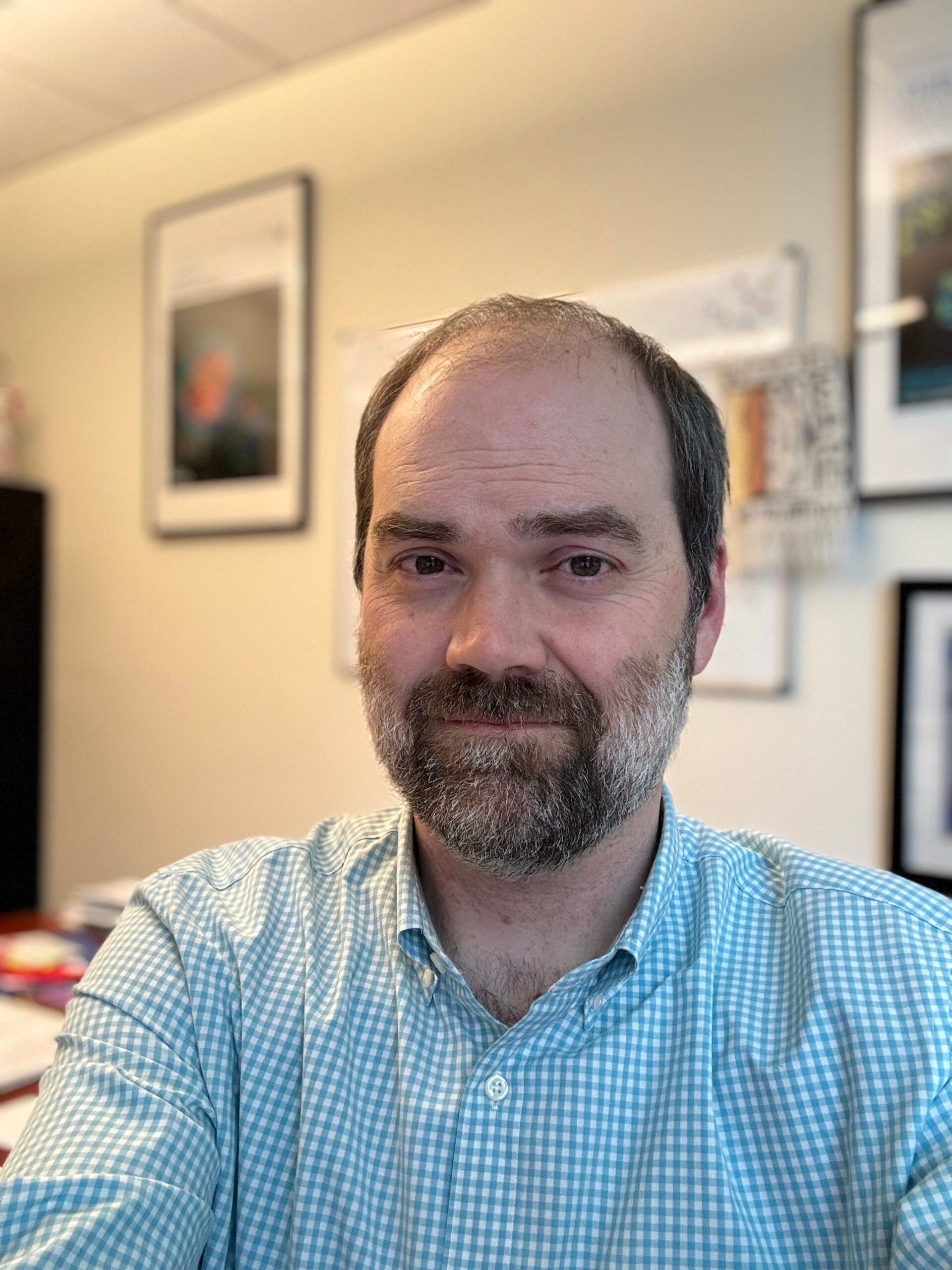
DR. OWEN WOODWARD, PH.D.
University of Maryland School of Medicine
Biography
Dr. Woodward is an Associate Professor in the Departments of Physiology and Medicine, at the University of Maryland School of Medicine. Dr. Woodward earned his undergraduate degree from the University of Virginia and received his PhD at the University of Washington, Seattle. He completed his postdoctoral training at the Johns Hopkins University School of Medicine with Dr. Bill Guggino, and joined the Physiology faculty at the University of Maryland in 2013.
The driving interest of the Woodward laboratory is to understand how ion channels and transporters operate and are regulated to produce the specific physiological functions of the kidney. This includes how these functions are altered in genetic diseases like Polycystic Kidney Disease, where the Woodward Laboratory has focused on building the next generation of renal epithelial 2D and 3D model systems to study the initial mechanisms of cystogenesis following the loss of PKD1 and PKD2 function. Current work relates to how the polycystins regulate renal epithelial cell and tubule morphology.
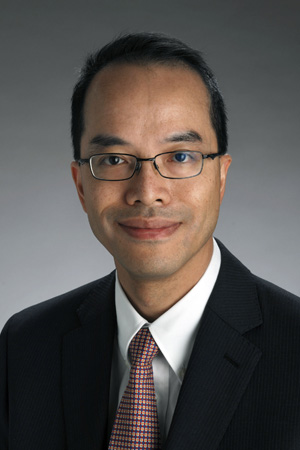
ALAN YU, M.B., B.CHIR
University of Kansas Medical Center
Biography
Dr. Yu directs a laboratory-based research program that investigates renal tubule physiology and diseases. A current focus is on understanding paracellular epithelial transport and its regulation. Paracellular transport occurs through tight junctions and is mediated by a family of channels called claudins. The investigation of claudins promises to reveal novel fundamental insights into the pathogenesis of many diseases, including acute kidney injury, salt-sensitive hypertension and kidney stone disease. Dr. Yu also performs clinical research in polycystic kidney disease. He is particularly interested in translating bench research findings about cell signaling pathways into drugs and therapeutics, especially repurposed drugs, and testing them in early phase human trials.
Dr. Yu is a general nephrologist who sees the full spectrum of kidney diseases. He has a special interest in fluid, electrolyte and acid-base disorders, including hyponatremia, hypernatremia, hypokalemia, hyperkalemia, hypomagnesemia, renal tubular acidosis, and inherited tubulopathies, particularly Barrter’s and Gitelman’s syndrome.
Page last updated April 2023







